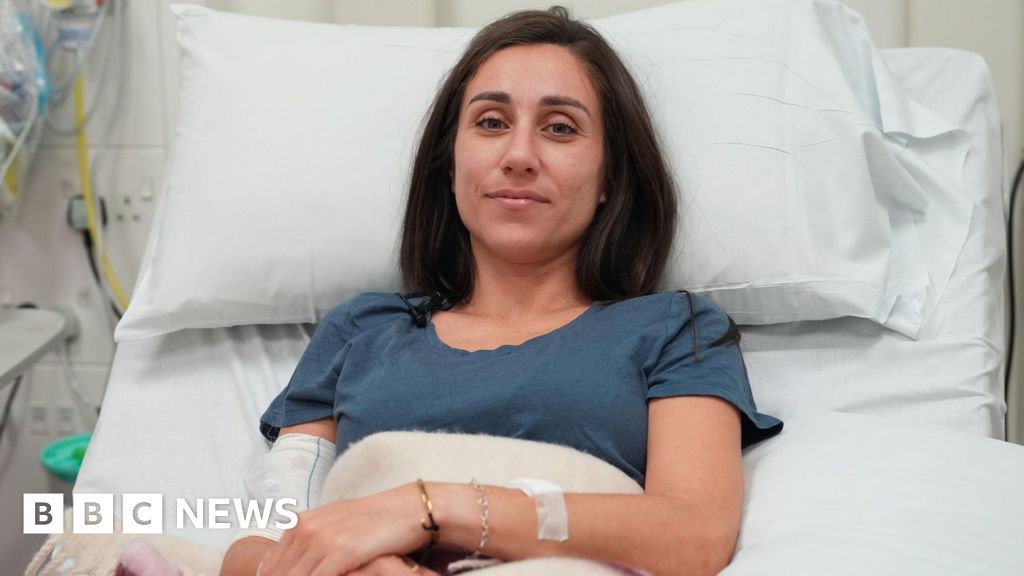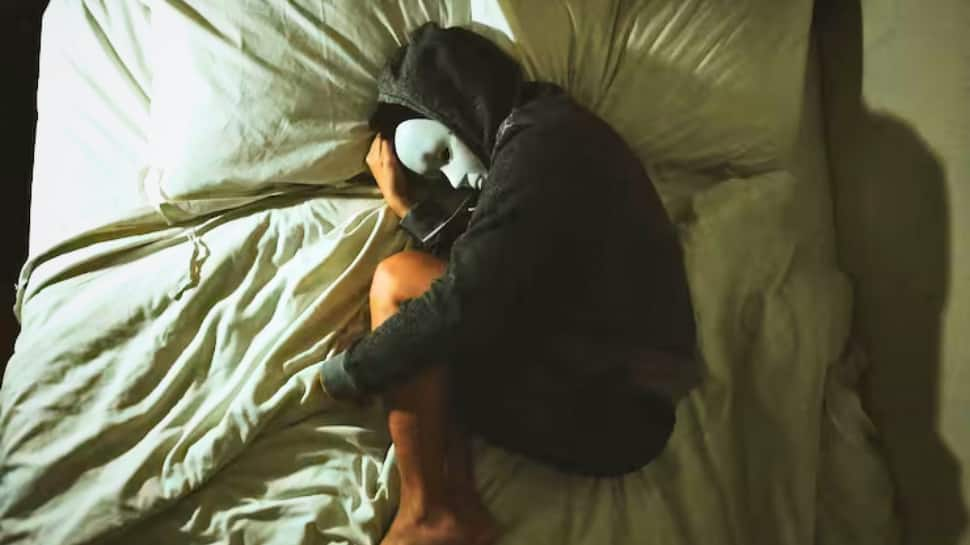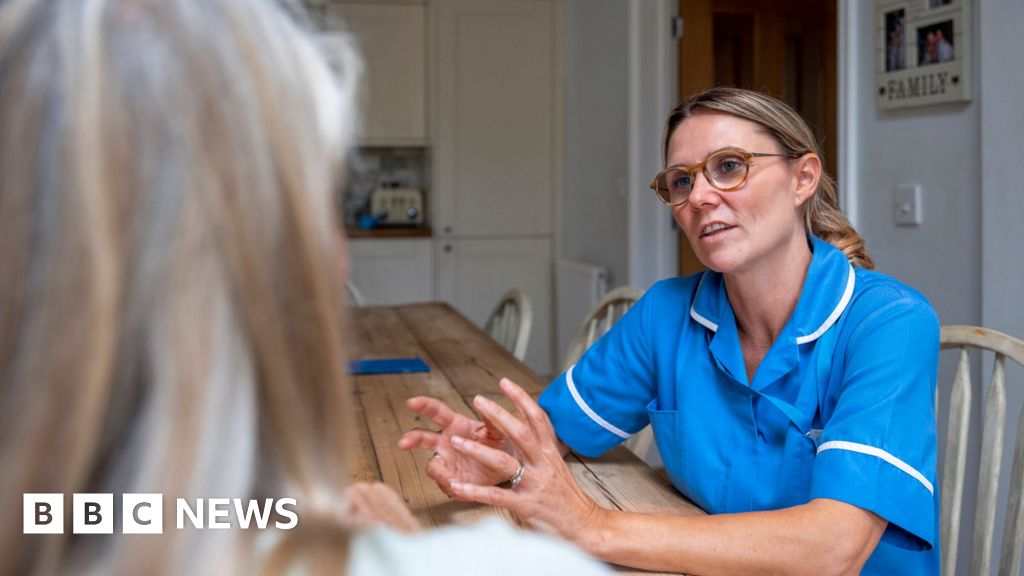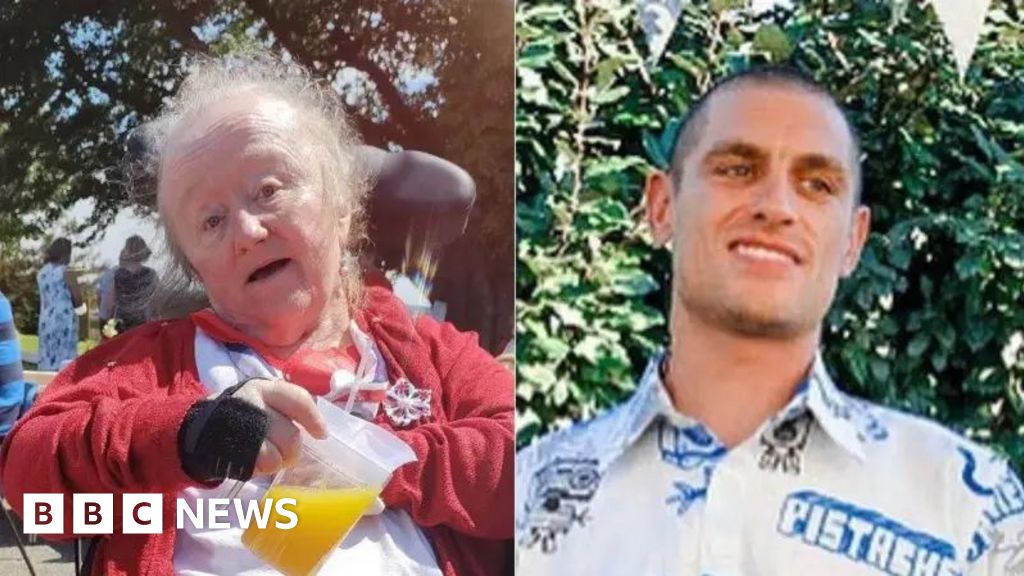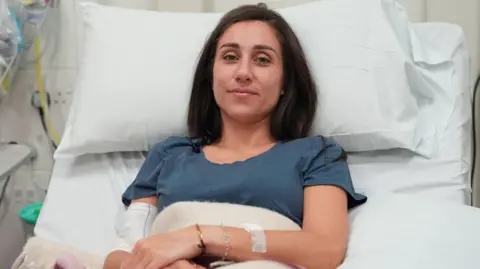 Lucy North/PA Media
Lucy North/PA MediaA biology teacher and mother-of-two has become the first UK patient to receive a “gamechanger” therapy to treat multiple sclerosis (MS).
Emily Henders, 37, from Bushey, Hertfordshire, was treated at University College London Hospital (UCLH) as part of a global clinical trial.
Mrs Henders had experienced “really scary” relapse episodes since being diagnosed in December 2021 during which, she said: “My legs don’t work, I can’t walk.”
Experts believe the targeted immunotherapy treatment could “transform” lives by slowing or even halting progression of the disease.
“I hope taking part in the trial means I will never have to experience another relapse and that my MS symptoms will not progress,” Mrs Henders said.
“I know it is still experimental but it offers a scientific rationale which, as a biology teacher, makes sense to me.”
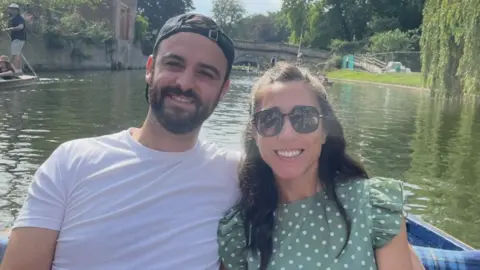 Family handout/PA Media
Family handout/PA MediaMultiple sclerosis is an “autoimmune” disease, which happens when the immune system attacks nerves in the brain and spinal cord by mistake.
The experimental treatment, known as CAR T cell therapy, aims to reset the immune system.
It works by depleting B cells, which are thought to drive the autoimmune attack in MS.
The patient’s own T cells, which hunt out infected or damaged cells, are genetically engineered and fed back into the patient via an infusion to “re-set” the immune system.
Mrs Henders, who has sons aged six and four, told the PA news agency she was feeling well after receiving the infusion in a three-minute procedure.
“I’m actually feeling really good. I’m feeling normal and I’ve got energy back.
“I don’t have any nausea, I’ve had no fevers. I’m feeling pretty relaxed,” she said.
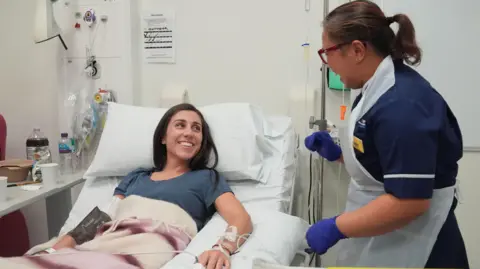 Lucy North/PA Media
Lucy North/PA MediaMrs Henders, whose father also has MS, was diagnosed on Christmas Eve after suffering tingling in her hands.
“Physically, my symptoms have progressively got worse,” she said.
“I notice sometimes my foot hits the pavement in a funny way. Or when I’m teaching and my hands are shaking.”
Mrs Henders will “never forget” her first major relapse when her children saw her taken away by ambulance.
“I was getting out of bed and I couldn’t stand up – it was very scary,” she said.
“I’ll never forget my children’s faces as the medics were rushing in and strapping me to a chair.
“Emotionally, I worry for them and how they’re dealing with it.
“I worry that this might be passed on to them. It’s very scary for the future, not knowing what the next relapse would bring.”
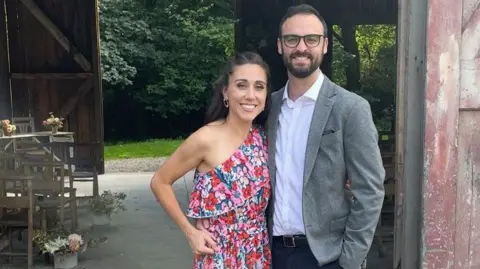 Lucy North/PA Media
Lucy North/PA MediaMrs Henders hopes the treatment will avoid the decline typical in MS patients, who often require a wheelchair.
“It would mean I’ll be able to chase my children around, and I’ll still be able to work,” she said.
“I wouldn’t be able to be a science teacher in a wheelchair or even on crutches.
“It’s too much of a health and safety hazard, so that would have a real impact on my job.”
A spokesperson for the MS Society said: “It’s early days but, if trial results prove successful, CAR T-cell therapy could be a gamechanger for how we treat the condition.”
UCLH consultant haematologist Claire Roddie said the team was “excited” about the trial.
“We are taking a treatment developed to treat cancers and re-purposing it for a whole new spectrum of conditions,” she said.
“We give CAR T-cell therapy – bang, you’re in, you get the treatment, and that’s it.
“Hopefully you don’t need any more drugs beyond that point.
“If we could achieve that in MS, it would transform so many people’s lives.”

